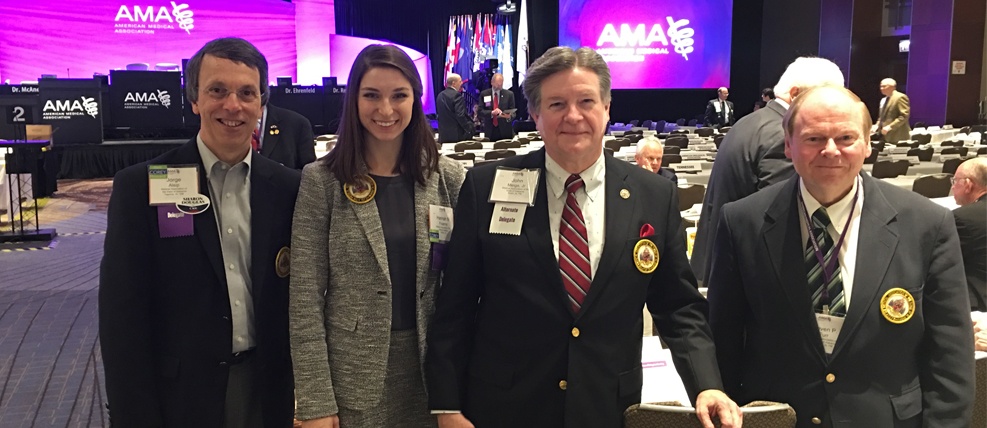Tag: AMA
-

-

-

Alabama Physicians Attend AMA Meeting in Chicago to Discuss State of Health Care
Pictured from left in the back are Dr. Buddy Smith Jr., Dr. Jefferson Underwood and Dr. Jerry Harrison. In front from left are Dr. Steven Furr, Medical Student Delegate Hannah Ficarino from the University of South Alabama, Dr. Jorge Alsip and Dr. John Meigs. During the AMA’s Annual Meeting held June 8-13, 2018, the House…
-

Metro Areas Increasingly Dominated by Single Insurance Companies
In an analysis of competition in health insurance markets across the U.S., a study conducted by the American Medical Association found that in 169 of 389 metropolitan areas (43 percent), a single health insurer had at least a 50 percent share of the market. This represents an eight percent increase in such markets over just…
-
